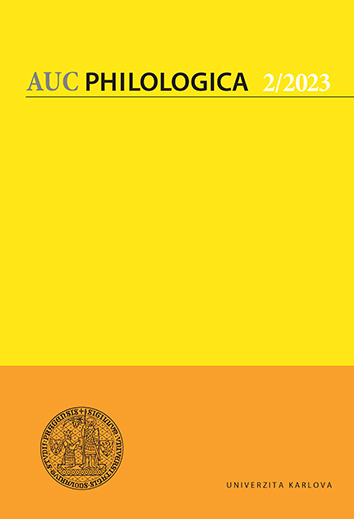Od přístupu bez omezení po tužku a papír: posteditace strojového překladu v překladatelsky zaměřeném studiu
From Unrestricted Access to Pencil and Paper: Machine Translation Post-editing in Translation Classes
Author(s): Tomáš Svoboda, Šimon SchwarzSubject(s): Language and Literature Studies, Translation Studies
Published by: Univerzita Karlova v Praze, Nakladatelství Karolinum
Keywords: translation; machine translation; MT; machine translation post-editing; MTPE; translator training; post-editing training; translation skills; post-editing skills; survey
Summary/Abstract: In many institutes that prepare future translators, the rapid development of machine translation (MT) technology led to it being reflected in translator training. The effort to adapt translation programmes or courses to this development most commonly manifests itself in the introduction of new content features into the curriculum, specifically machine translation post-editing (MTPE). Regardless of any formal integration of these processes into translator training, students are aware of the available MT technology and use it even in seminars focused on traditional (i.e., human) translation, not MTPE. As a result, instructors face the question of whether they will tolerate such practices or attempt to contain them. In light of this development, a survey was carried out at different translator-training institutes within the European Master’s in Translation network in the Autumn of 2022 to map the way they implement MTPE. The research was concerned with both actual instruction and exams in translation courses as well as with final exams at the end of a study programme. This article assesses quantitative data (i.e. the respondents’ answers to survey questions) and reviews the comments of respondents regarding the use of MTPE in their institutes (qualitative approach). Furthermore, some outcomes of discussions to this effect, which took place at the Institute of Translation Studies, Faculty of Arts, Charles University, Prague, are incorporated here, too. The survey results show that most translation seminars cover MTPE to a limited extent only. During actual instruction the most common way to track MT use is the requirement that students supply a commentary together with their translations. In it, students demonstrate if their strategy was a reflected one, if they used MT and, if so, to what extent. When it comes to examinations, the attitude towards MT was generally a liberal one. Thus it involves no ban being imposed on MT usage and/or students are not discouraged from using it in slightly over 50% of recorded cases, combined. If, however, MT is explicitly banned in the course, the ban is more likely to be enforced during exams rather than in actual instruction during seminars. The article concludes with an outlook of future developments predicting a continued proliferation of translation technology in translation training, including a more pronounced blending of MT use and MTPE in dedicated classes.
Journal: Acta Universitatis Carolinae Philologica
- Issue Year: 2023
- Issue No: 2
- Page Range: 83-107
- Page Count: 25
- Language: Czech

